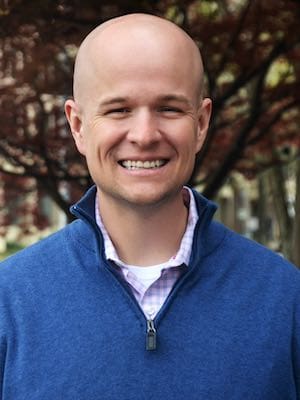Baptist ethicist Robert Parham caught my attention with an editorial following the Aurora, Colo., mass shooting on July 20, 2012.
His observation that few faith leaders were willing to address an underlying issue at the heart of this tragedy – America’s gun culture – has stuck with me.
“Faith leaders did speak about mourning and sorrow, peace and prayer,” Parham wrote. “But precious few have spoken about gun control – or, more accurately, the out-of-control gun lobby. The exceptions deserve note.”
Parham went on to list several noteworthy exceptions, including a powerful piece by Jesuit priest James Martin who confronted the bumper-sticker ethic of “Guns don’t kill people, people do.”
Martin concluded, “The question is not so much how lives are ended, but how to make it more difficult to end lives.”
In Georgia, faith leaders who have been grappling with questions like Martin’s are publicly sounding off against proposed legislation related to concealed weapons.
House Bill 875 would remove the prohibition on firearms in bars, churches, public housing, unsecure areas of airports and in government buildings that are not screened by security personnel during business hours.
Bars and churches would have to adopt policies and post signs to prevent concealed weapons from being brought onto the premises.
The bill would also give primary and secondary schools (both public and private) the freedom to permit teachers and administrators to carry concealed weapons on school property.
In addition, rather than arrest a licensed person caught carrying a gun on the campus of a postsecondary institution – including public and private colleges, universities and technical schools – the bill would mandate a mere $100 fine.
The National Rifle Association has called HB 875 “the most comprehensive pro-gun reform legislation introduced in recent state history.”
Faith leaders from across Atlanta recently attended the bill’s hearing before the Public Safety and Homeland Security Committee of the Georgia House of Representatives.
Baptist pastors linked up with Jewish and Catholic leaders to testify against the proposed legislation.
Julie Pennington-Russell, lead pastor of First Baptist Church, Decatur, Ga., called the bill “an intrusion into the life of faith.”
Rabbi Peter Berg of The Temple in Atlanta stated that he doesn’t want to have to put a “no guns allowed” sign outside of his synagogue, the largest in the state.
Sadly, other faith leaders in the state held a different perspective.
Mike Griffin, the new public policy spokesman for the Georgia Baptist Convention, testified in support of HB 875 and claimed to speak on behalf of 1.3 million Georgia Baptists.
Griffin, a former lobbyist for Georgia Right to Life, told House members that guns in the church is a pro-life cause. “It’s a sanctity of human life issue, as far as I’m concerned,” he said.
I wonder how Griffin concluded that the best way to promote a pro-life ethic is to be allowed to “pack heat” in the house of the Prince of Peace.
Griffin’s statement is surprising because conservative evangelical leaders have sought to limit the “pro-life” label to mean only opposition to abortion for many years.
Thus, even though I believe Griffin’s assessment of HB 875 is misguided, he is correct to note that a commitment to the sanctity of human life extends beyond abortion.
A commitment to the sanctity of human life requires engagement with other issues, including gun control.
I believe that our shared and lived faith, rooted in the cornerstone belief that we are all made in the image of God, necessitates a consistent ethic of life.
And confronting America’s out-of-control gun lobby is an important way to champion life and be a witness for this all-important Christian ethic.
The Georgia faith leaders speaking out against HB 875 are an encouragement, and I hope their example will encourage others not to succumb to the temptation to be silent.
“Feeling good” and “doing good” are distinctly different. The displayed courage of faith leaders makes one “feel good.” But we must also “do good.”
After all, Georgia is not the only state with an out-of-control gun lobby.
 Aaron Weaver is communications manager for the Cooperative Baptist Fellowship. He blogs at The Big Daddy Weave and you can follow him on Twitter @BigDaddyWeave.
Aaron Weaver is communications manager for the Cooperative Baptist Fellowship. He blogs at The Big Daddy Weave and you can follow him on Twitter @BigDaddyWeave.
Communications director for the Cooperative Baptist Fellowship, where he is editor of fellowship! magazine and the CBFblog. Weaver is a member of the Commission on Creation Care of the Baptist World Alliance.

